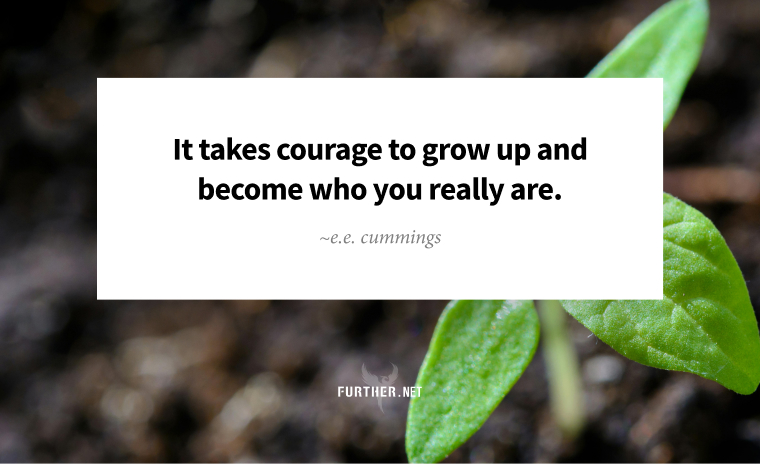
According to Pierre-Auguste Renoir’s son, these were his father’s final words after painting all day in his deathbed:
I think I’m beginning to learn something about it.
Arguably, Renoir wasn’t a late bloomer, having had initial success at 33. But his last words reflect the spirit of those who reject the idea that their best days are behind them.
Statistics say there are legions of late bloomers among us: as we’ve discussed here at Further, 45 is the average age of successful startup founders. Many Nobel Prize winners make their most significant discoveries in their mid-40s. And even Colonel Harland Sanders didn’t launch his brand, Kentucky Fried Chicken, until he was in his 60s.
So, how can you ensure the bloom is never off your rose? The short answer is Brian’s signature sign-off — keep going — but there’s more to sowing your ability to be ever in bloom.
Better Late Traits
Rich Karlgaard, author of the book Late Bloomers, took a deep dive into what empowers someone to patiently wait for their time to come. His findings reveal that the seeds of late blooming are planted early — but not how you might think.
It turns out that late bloomers are not simply early bloomers on a delayed timetable — they didn’t just do the things early bloomers did but at a later age. Late bloomers tend to be qualitatively different, possessing a different set of abilities that are mostly invisible to or discouraged by our current education system.
For example, if you’re a late bloomer, you’re intrinsically motivated, pursuing improvement because it’s naturally satisfying, not because others reward you. You don’t stress about screwing up or not conforming, and you follow your curiosity to explore and experiment, for better or worse.
Am I saying Jeff Spicoli grew up to be a prosperous cannabis entrepreneur? As a classic late bloomer, it’s likely — especially if after he said “Aloha, Mr. Hand,” Spicoli found a way to meld his diverse interests and self-teach himself the business skills necessary to succeed.
In Bloom
Ultimately, late-life achievement is all about persisting beyond obstacles and disappointments, embracing ambiguity, and prioritizing improvement. As Arthur C. Brooks points out, iconic late-blooming creatives like Cezanne and Alfred Hitchcock share this trait:
Their focus is not on their finished work, which they often toss away haphazardly. Their focus is on the process of learning itself: Am I closer to understanding, to mastering?
In other words, engage in long life learning. It’s a constant lesson in humility, even as you deepen your knowledge and expertise. And it’s about keeping your intrinsic motivation juiced and your passion percolating.
After all, life isn’t a sprint; it’s a marathon. The secret is to focus on growing old vs. getting old. That way, the fruits of your lifelong labor will bear wisdom, inspiration, and joy until the very end.
You Might Be a Late Bloomer (The Atlantic gift article 🎁)
